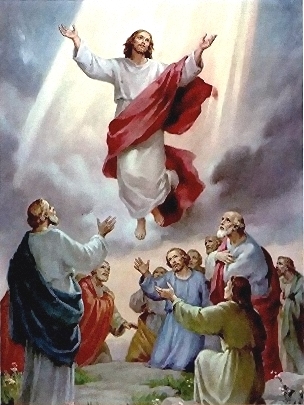In one week we’ll celebrate Pentecost, when the Easter season will end and we will return to Ordinary Time. After the prolonged joy of celebrating the Risen Lord we might be expecting things to return to normal, but that’s the wrong attitude. The disciples on the road to Emmaus thought things would return to normal, but Our Lord quickly set them straight. The Risen Lord teaches us that things can never be the same again. We continue to be in the world, but we’re called to no longer be of the world, because now we’re Our Lord’s.
Today’s First Reading brings us to the cusp of Pentecost, when Peter sees the Twelve must be twelve in order to fulfill the Scriptures. Our Lord chose twelve apostles and connected them with the twelve tribes of Israel because those twelve tribes had an eschatological significance, just as the Twelve do. With Judas dead the Eleven felt the need to complete their number, and ultimately, the first disciples proposed candidates, but the Lord made the final decision. By casting lots to see who’d replace Judas they were putting the final decision in his hands, not their own. Saint Matthias became one of the Twelve to fulfill Our Lord’s will regarding the Twelve. In this we see that the first disciples knew they should seek out the Lord’s will when deciding on their plans, not their own.
In today’s Second Reading the apostle and evangelist Saint John reminds us it’s not just our faith in the Lord as Almighty that motivates us, but our faith that he loves us. The Lord, God Almighty, has not just shown himself to be Almighty, a serious motivation for not wanting to displease him, but also shown himself to be love. A faith-filled awareness of that fact is what assures us that he is always with us and motivates us to love one another as the greatest way to please him. As we prepare for Pentecost this week Saint John reminds us that the Holy Spirit also reminds us that we abide in God and God in us. We’re united.
In today’s Gospel Our Lord prays not only for the disciples hearing his words during the Last Supper, but for every Christian. He prays for us to be just as united, just as “one” as he and the Father are one, and that is a tall order. We are called to live a unity like the unity of the Trinity, and he actually enables us to participate in that unity, albeit not in the same way as Father, Son, and Holy Spirit, but a unity that we call communion. Jesus is praying today for us to share a communion of life and love, not just with God, but with each other. The biggest obstacle to living that communion is us. The “world” Jesus speaks of today is everything that goes contrary to communion with each other and with God. We live in this environment, and we struggle with it every day. Sometimes the “world” seems more organized, more successful, but Jesus prays that we be consecrated in truth to remember than any illusion of communion between the worldly will vanish when their interests start to diverge.
Ultimately it is the difference between selflessness–genuinely caring for others and seeking their good as much as our own–and selfishness–a life of alliances that are made and broken, often at the expense of others and leading us in the end to a friendless existence. Our Lord wants to free us from places, circumstances, and mindsets that are simply worldly, and worldliness is a constant temptation in this life, which is why Our Lord prays for us today to be free of it.
A worldly outlook is ultimately a selfish, shortsighted, and superficial outlook. The love we have, and have for others, takes us out of ourselves, broadens our horizons, and enables us to appreciate life more deeply than a worldly outlook ever could. Let’s ask Our Lord today for the grace to conquer a little more of the worldliness in which we live by living a charitable life that is concerned with God and with others.
Readings: Acts 1:15–17, 20a, 20c–26; Psalm 103:1–2, 11–12, 19–20; 1 John 4:11–16; John 17:11b–19. See also 7th Week of Easter, Sunday.



